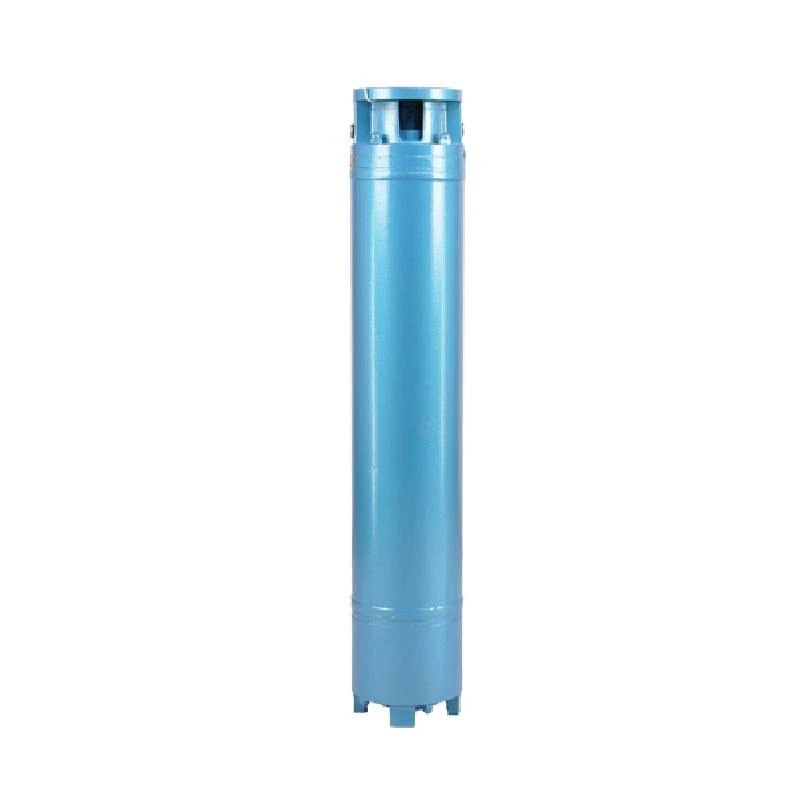Nov . 25, 2024 13:50 Back to list
deep well surface pump
Deep Well Surface Pump A Comprehensive Overview
In the realm of water extraction and management, the deep well surface pump plays a critical role. These pumps are designed to draw water from deep underground sources, making them indispensable in agricultural, municipal, and industrial applications. Understanding their functionality, advantages, and maintenance is essential for anyone involved in water resource management or those seeking effective water supply solutions.
What is a Deep Well Surface Pump?
A deep well surface pump, also known as a vertical turbine pump, is a mechanical device specifically engineered to lift water from deep wells. Unlike submersible pumps that operate underwater, surface pumps are installed above ground and use a long shaft to transmit power to the pump mechanism submerged in the well. This design is particularly advantageous in applications where the water source is located at considerable depths, typically ranging from 25 to several hundred feet.
How Does It Work?
The operation of a deep well surface pump is relatively straightforward. A motor, usually located above the ground, drives a vertical shaft that extends down into the well. Attached to this shaft is the pump assembly, which includes impellers and diffusers. As the motor turns the shaft, the impellers spin, creating a centrifugal force that pushes water upward through the suction pipe to the surface. The pump can be equipped with multiple stages of impellers, allowing it to handle different flow rates and head heights effectively.
Advantages of Deep Well Surface Pumps
1. Efficiency Deep well surface pumps are designed to be energy-efficient, making them a cost-effective solution for pumping large volumes of water over extended periods. Their efficiency is crucial for agricultural irrigation and municipal water supply, where operational costs can significantly impact budgets.
2. Long Lifespan With minimal submerged components, these pumps tend to experience less wear and tear compared to submersible pumps. This durability can lead to lower maintenance costs and longer service life.
3. Easier Maintenance Given that the bulk of the equipment is located above ground, maintenance and repairs can often be performed with relative ease. This accessibility reduces downtime and ensures that vital water supplies can be restored quickly.
deep well surface pump

4. Scalability Deep well surface pumps are available in various sizes and configurations, making it easy to scale up operations as water demand increases. This flexibility is beneficial for both small-scale farms and large industrial operations.
5. Versatility These pumps can be used in various applications, from agriculture to municipal water supply, industrial processes, and even geothermal heating systems. Their adaptability makes them a popular choice across different sectors.
Considerations for Selecting a Deep Well Surface Pump
When choosing a deep well surface pump, several factors must be considered
- Well Depth Understanding the depth of the water source is crucial for selecting a pump with adequate lift capacity. - Flow Rate Requirements The pump must meet the specific water demand of the application, ensuring that it can deliver the required gallons per minute without strain. - Water Quality The presence of sand, silt, or other particles in the water can affect pump selection. Certain materials and designs are better suited for handling abrasive or contaminated water. - Power Supply Assessing the available power sources for the pump is essential, as they can be powered by electricity, diesel engines, or even renewable sources in some cases.
Maintenance and Care
Regular maintenance is key to ensuring the longevity and efficiency of a deep well surface pump. Routine checks on the motor, shaft, and impellers should be conducted, and any signs of wear or damage should be addressed promptly. Additionally, monitoring water quality and flow rates helps to identify potential issues before they escalate.
Conclusion
Deep well surface pumps are an integral component of modern water management systems. Their efficiency, versatility, and ease of maintenance make them a preferred choice for a wide array of applications. By understanding their operation and best practices for selection and maintenance, users can optimize their water extraction processes, ensuring a reliable and sustainable water supply for the future.
-
Submersible Water Pump: The Efficient 'Power Pioneer' of the Underwater World
NewsJul.01,2025
-
Submersible Pond Pump: The Hidden Guardian of Water Landscape Ecology
NewsJul.01,2025
-
Stainless Well Pump: A Reliable and Durable Pumping Main Force
NewsJul.01,2025
-
Stainless Steel Submersible Pump: An Efficient and Versatile Tool for Underwater Operations
NewsJul.01,2025
-
Deep Well Submersible Pump: An Efficient 'Sucker' of Groundwater Sources
NewsJul.01,2025
-
Deep Water Well Pump: An Efficient 'Sucker' of Groundwater Sources
NewsJul.01,2025
-
 Submersible Water Pump: The Efficient 'Power Pioneer' of the Underwater WorldIn the field of hydraulic equipment, the Submersible Water Pump has become the core equipment for underwater operations and water resource transportation due to its unique design and excellent performance.Detail
Submersible Water Pump: The Efficient 'Power Pioneer' of the Underwater WorldIn the field of hydraulic equipment, the Submersible Water Pump has become the core equipment for underwater operations and water resource transportation due to its unique design and excellent performance.Detail -
 Submersible Pond Pump: The Hidden Guardian of Water Landscape EcologyIn courtyard landscapes, ecological ponds, and even small-scale water conservancy projects, there is a silent yet indispensable equipment - the Submersible Pond Pump.Detail
Submersible Pond Pump: The Hidden Guardian of Water Landscape EcologyIn courtyard landscapes, ecological ponds, and even small-scale water conservancy projects, there is a silent yet indispensable equipment - the Submersible Pond Pump.Detail -
 Stainless Well Pump: A Reliable and Durable Pumping Main ForceIn the field of water resource transportation, Stainless Well Pump has become the core equipment for various pumping scenarios with its excellent performance and reliable quality.Detail
Stainless Well Pump: A Reliable and Durable Pumping Main ForceIn the field of water resource transportation, Stainless Well Pump has become the core equipment for various pumping scenarios with its excellent performance and reliable quality.Detail
